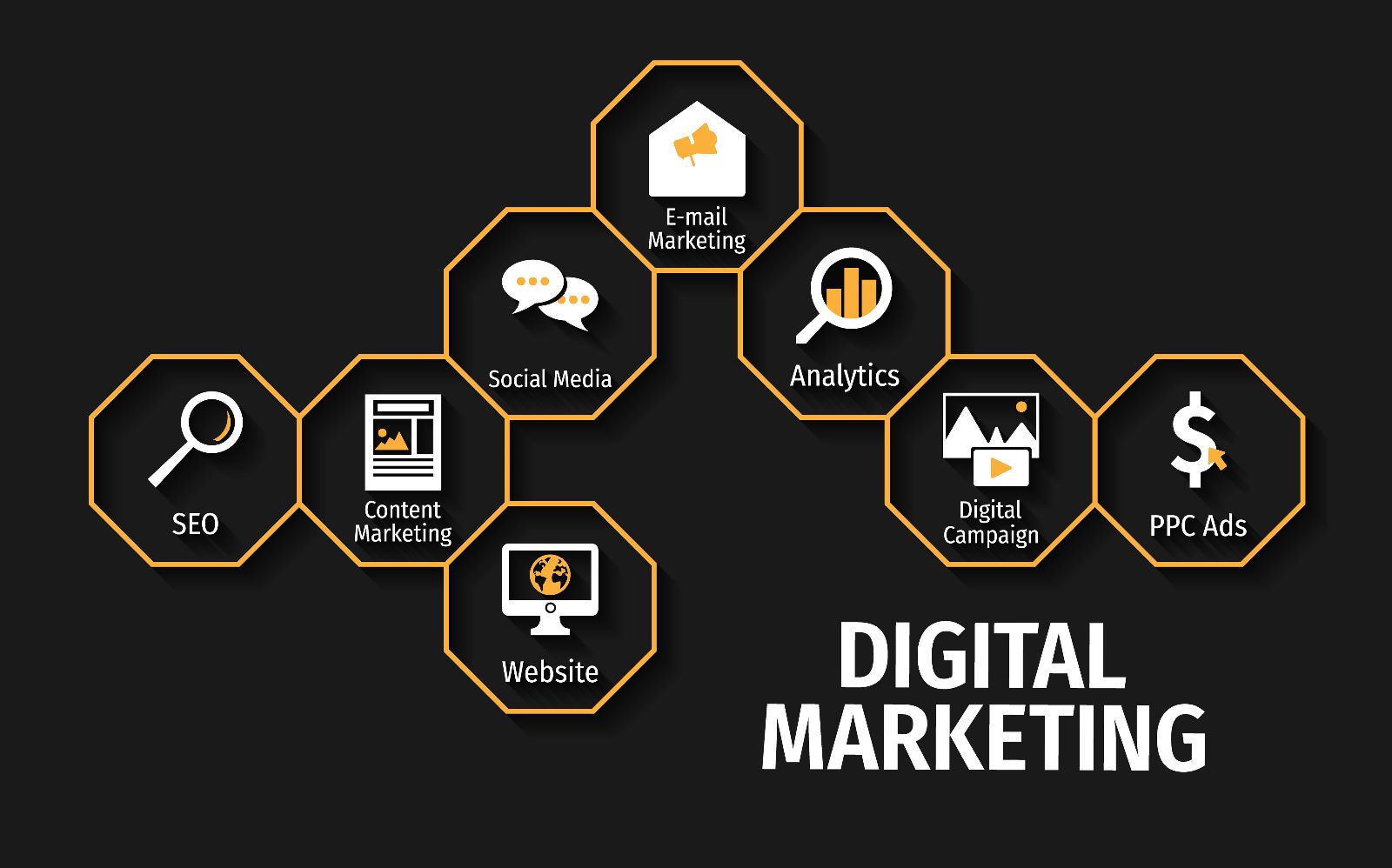Digital Marketing (Kapx Context)

Digital marketing is an absolute necessity in the business world. It entails a range of strategies, platforms, and tools aimed at promoting products and services online and capturing the attention of the target audience. This thorough overview is a must-read for individuals or businesses new to the field, providing them with a solid understanding of the fundamental digital marketing strategies, popular platforms, and essential tools to kick start their efforts.
- Search Engine Optimization (SEO):
The primary goal of SEO is to improve website visibility in search engine results pages (SERPs) without any paid promotion. It entails various crucial components, including but not limited to keyword research, technical SEO, on-page optimization, link building, and content creation. You can use potent tools such as Google Keyword Planner, SEMrush, and Moz to conduct effective keyword research and analysis.
- Pay-Per-Click Advertising (PPC):
PPC advertising enables businesses to display their ads on search engine results or websites while solely paying for clicks made by users. The top platform for PPC is undisputedly Google Ads, which offers a multitude of features including keyword-based targeting, ad scheduling, and extensive analytics.
- Social Media Marketing:
To effectively engage with your target audience, it is essential to utilize various social media platforms such as Facebook, Instagram, Twitter, LinkedIn, and YouTube. Compelling content creation, paid campaigns, influencer partnerships, and community management are all crucial components to achieve this. Social media management tools like Hootsuite, Buffer, and Sprout Social can significantly aid in managing and scheduling your social media posts.
-
Content Marketing:
The production and dissemination of meaningful and relevant content are crucial for engaging and retaining a specific audience. Content marketing encompasses a range of formats, including blog posts, articles, videos, infographics, eBooks, and more. Platforms like WordPress, Medium, and Canva offer valuable assistance with content creation, while HubSpot and Mailchimp facilitate content dissemination and email marketing.
-
Email Marketing:
Email marketing is an incredibly potent method that focuses on nurturing leads and engaging with clients through personalized email campaigns. This involves generating an email list, crafting bespoke content, and tracking important metrics like open rates and click-through rates. Mailchimp, ConvertKit, and Constant Contact are among the most used email marketing platforms.
- Influencer Marketing:
Influencer marketing refers to leveraging individuals who possess a vast social media following to endorse products or services. It is imperative to identify suitable influencers, negotiate partnerships, and keep a close eye on the outcomes. Tools such as BuzzSumo and Upfluence can be utilized for influencer discovery and management.
-
Affiliate Marketing:
Businesses can team up with affiliates through affiliate marketing to promote their products or services and earn a commission on sales. This collaboration is facilitated by affiliate networks like Amazon Associates, Commission Junction, and ShareASale.
-
Video Marketing:
The core of video marketing is to produce and promote videos that captivate and instruct the intended viewers. Numerous platforms, including YouTube, Vimeo, and TikTok, offer abundant possibilities for disseminating video content. To create polished videos, one can utilize video editing software like Adobe Premiere Pro and iMovie.
-
Conversion Rate Optimization (CRO):
The goal of CRO is to significantly increase the number of website visitors who complete desired actions, such as purchasing a product or submitting a form. This is achieved through rigorous A/B testing, optimizing the user experience, and meticulously analyzing data. Advanced tools such as Google Optimize and Hotjar are utilized to test and scrutinize user behaviour, ensuring optimal results.
-
Analytics and Tracking:
Tracking and analyzing data is essential when it comes to determining the success of digital marketing strategies. Fortunately, widely used tools like Google Analytics can provide invaluable insights into website traffic, user behaviour, conversions, and more. Additionally, social media platforms and advertising networks often come equipped with built-in analytics and tracking tools that can be incredibly useful.
To excel in the digital marketing realm, it is essential to stay aware of the latest tactics, platforms, and tools. By keeping up with industry trends, attending webinars and connecting with peers, you'll always be ahead of the game and fully informed.

